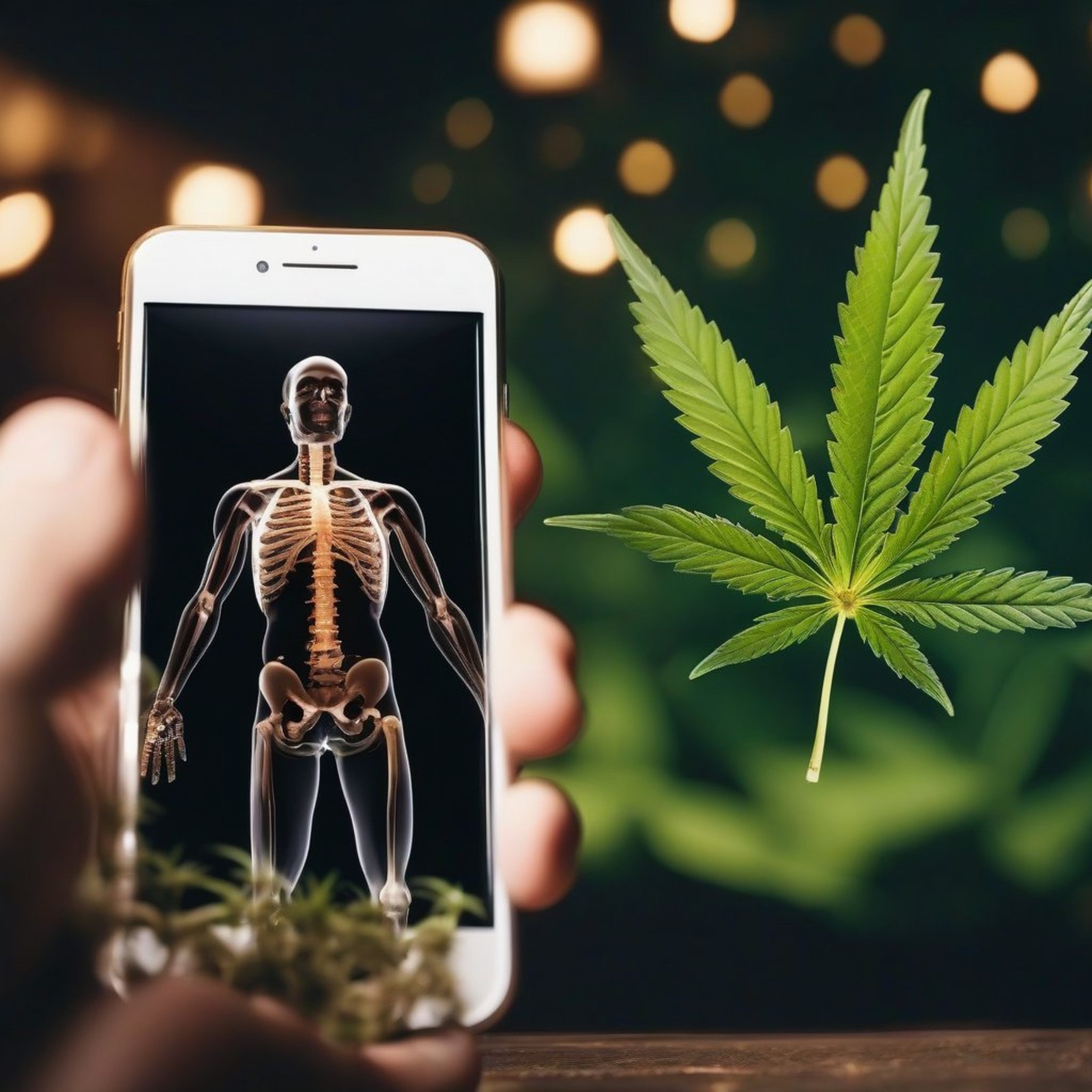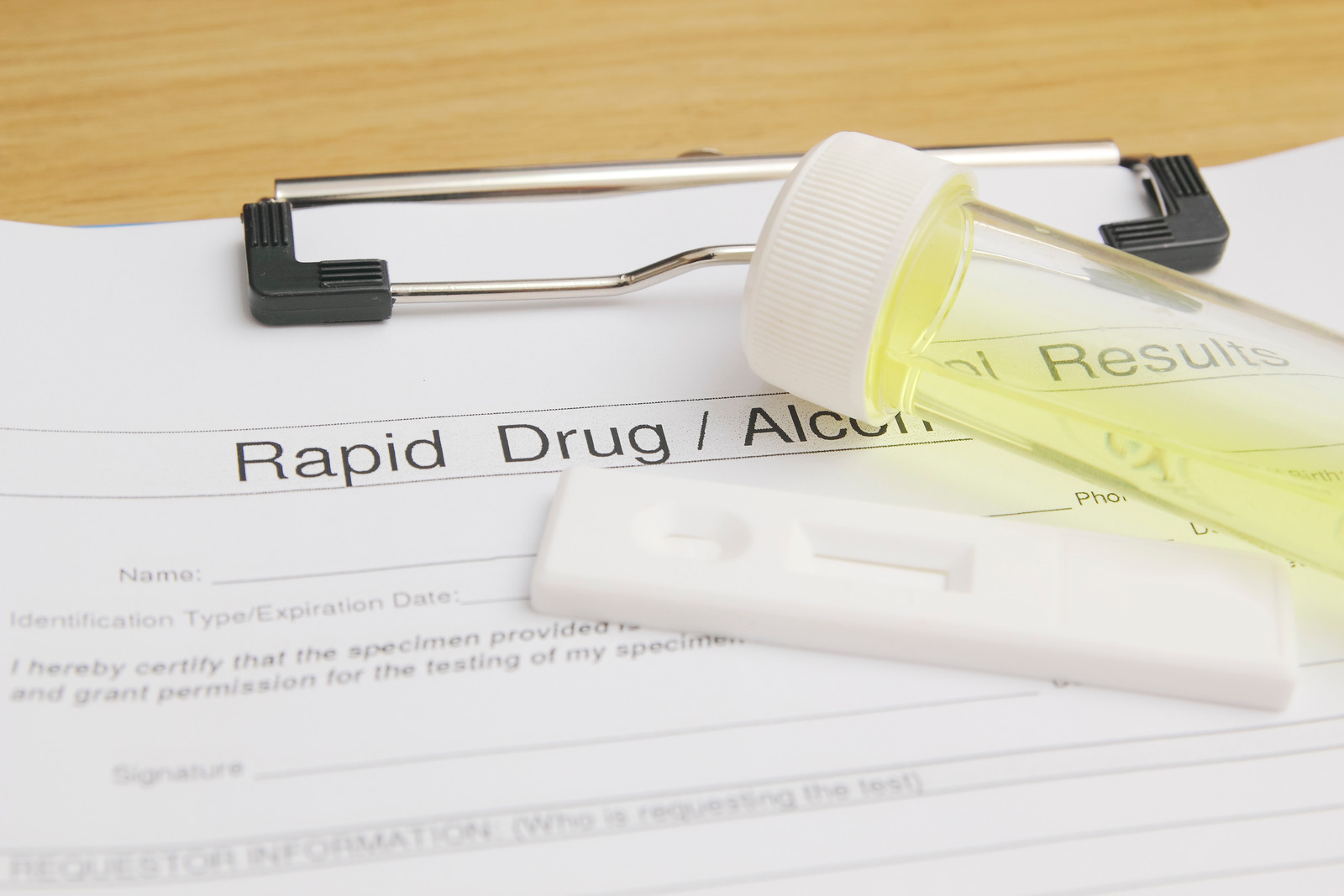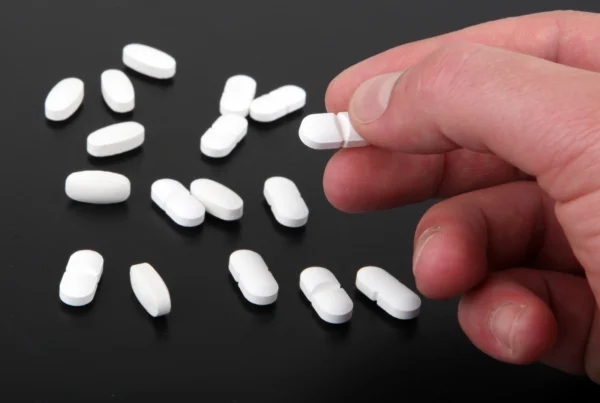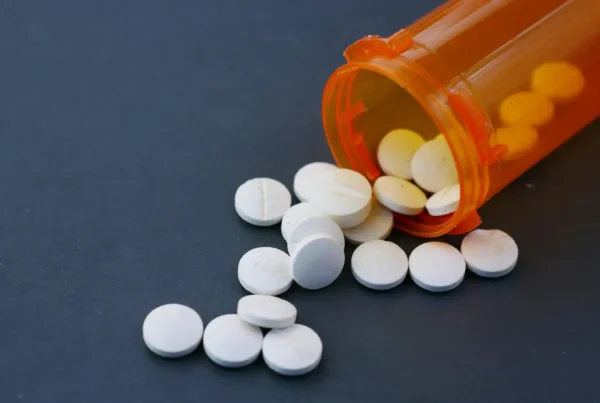
Table of Contents
- What Are The Effects of THC Consumption?
- How is THC metabolized by the body?
- What Are The Best Detox Methods for Eliminating THC From the Body?
- Do Rapid Marijuana Detox Methods Work?
- How Long Does THC Stay In Your System?
- What Symptoms Are Experienced During a THC Detox?
- Marijuana Detox: How Long Does It Take?
- What are the risks of Detoxing from Marijuana Alone?
- Overcoming THC Dependence In Safety
Key Points
- The best way to get weed out of your system is your body’s natural detoxification process. This is the safest and most effective method for THC to be fully metabolized and eliminated from the body.
- The effects of THC are quite diverse and will depend on the dosage taken, how frequently it's used, and individual health factors.
- Regular exercise, adequate hydration, and a healthy diet are all effective ways to help improve the body’s natural detoxification process.
- You should expect to wait up to 30 days for marijuana to no longer be detectable in your system via a urine test.
The body’s natural detoxification process is the safest and most effective method for THC to be fully metabolized and eliminated from the body. Depending on the level of regular consumption and the body’s dependency on the drug, it can take anywhere between 1-2 weeks before any traces of THC disappear.
Tetrahydrocannabinol, commonly referred to as THC, is the primary psychoactive compound found in cannabis. It’s known for creating the “high” associated with marijuana use.[1] However, for various reasons, individuals may be wondering what the most effective method is for completely detoxing from THC. There are a few things to consider and some popular methods to explore.
What Are The Effects of THC Consumption?
When you consume cannabis, THC attaches to certain receptors in the brain and central nervous system. This binding can lead to changes in mood and challenges in coordination and memory. The effects of THC are quite diverse and will depend on the dosage taken, how frequently it’s used, and individual health factors.
The physical side effects of THC often include an accelerated heartbeat, dry mouth, eye redness, and reduced motor coordination.[2] Additionally, individuals frequently report a skewed perception of time and a notable rise in hunger.[3]
THC can often lead to a range of psychological responses. Many regular users often report feeling more relaxed, a heightened sense of well-being, and increased sensory perception. On the flip side, not all psychological effects are beneficial. Some people might experience anxiety, feelings of paranoia, or panic, especially with higher doses.
Long-term and frequent use of THC has been associated with certain negative effects. Studies suggest that early cannabis use, particularly in younger individuals, may lead to cognitive challenges, impacting memory, learning, and attention.[4]
Current research is also exploring the potential relationship between habitual cannabis use and mental health conditions like depression and anxiety, but more comprehensive studies are necessary to understand these links fully.
How is THC metabolized by the body?
When smoked or ingested, your body absorbs THC into your bloodstream and into your organs and other tissues. Overtime, THC is broken down by your liver into 11-hydroxy-THC and carboxy-THC. This is then excreted from your body, largely through urine and stool.
How quickly your body metabolizes THC and how long it will be detectable in your system may depend on:
- Cannabis Intake Method – Smoking, vaping, or inhaling leads to higher THC levels than edibles due to liver metabolism.
- Body Mass Index (BMI) – Higher body fat may lead to longer THC retention since THC is fat-soluble.
- Dosage and Frequency – Chronic users retain THC longer; occasional users clear it faster.
- THC Potency – Higher THC doses lead to longer metabolite retention.
- Genetics – Variants in the CYP2C9 gene can slow THC metabolism.
- Drug Testing Method – Test sensitivity and type affect detection windows and accuracy.
What Are The Best Detox Methods for Eliminating THC From the Body?
When trying to cleanse THC from your body, the safest and most reliable method is to allow your body to naturally metabolize and remove the substance over a period of time. However, there are certain things you can do to help assist with the detox process.
Natural Detoxification
Your body is equipped with a sophisticated detox system that makes use of organs like the liver, kidneys, and sweat glands. These organs work together to break down and eliminate various toxins, THC included. The best way to detox is to stop using cannabis and allow your body the time it needs to cleanse the THC from your system. The time frame for this natural detox varies depending on how much and how often you’ve consumed cannabis, and it can range from a few days to several weeks.
Adequate Hydration
Keeping yourself well-hydrated is a factor in facilitating your body’s detoxification process, although many people rarely consume adequate amounts. Water is needed to flush out toxins and this includes THC by-products.
Staying hydrated can also help with some withdrawal symptoms. It’s recommended to avoid beverages like alcohol and high-caffeine drinks as these may that might cause dehydration. Instead ensure you’re drinking the recommended water intake amount for your height and weight. Excessive water consumption has not been shown to speed up the detox process itself, however it may dilute THC presence in your urine.
Regular Exercise
Regular exercise can be a big factor in helping you to detox from THC. Engaging in physical activities helps burn fat cells, where THC metabolites are stored. Exercise also improves blood circulation, which can lead to more efficient removal of toxins. Regular exercise can also help an individual manage cravings and prevent relapse.
Increased exercise and/or fasting have not been shown to decrease THC detected in drug tests.
Healthy Diet
A diet rich in fruits, vegetables, lean proteins, and whole grains can significantly support your body’s natural detox process. Foods like leafy greens, garlic, and lemons are particularly known for their detoxifying properties.
Do Rapid Marijuana Detox Methods Work?
Do products or home remedies claiming to speed up THC detox work? The short answer is no.
Detoxing from THC will normally take 2 (sometimes 3) weeks.
Many detox products, including drinks and pills, are marketed with claim to expedite the THC detox process or to “flush THC from your system”. However, there is limited to no scientific evidence to support the effectiveness of these products. Their efficacy is widely debated, and they may not be reliable. Additionally, some of these products can be costly and may not offer the promised benefits. Consulting a healthcare professional before using any detox aids is always recommended.
Most detox kits contain drinks or pills that act as diuretics but don’t actually speed up THC elimination. Other home remedies like cranberry juice, lemon juice, and apple cider vinegar lack evidence for effective THC detox.
How Long Does THC Stay In Your System?
How long THC remains in your body depends on several individual factors, including your metabolism, how often you use cannabis, the amount of THC taken, and your own body’s makeup.[5]
THC and Your Body
When you ingest cannabis, THC is broken down into smaller components, known as metabolites, which are stored in your body’s fat cells. These metabolites are gradually released back into the bloodstream and eventually leave the body. Since they are stored in fat cells, they can stay in your system for quite a while.
Types of Marijuana tests & THC Detection Windows
There are several ways to test of THC in someones system. The term “detection window” is used to describe the period during which THC can be detected in your body after you’ve used cannabis.[6] The length of this window varies depending on the type of test being used as well as the frequency of THC consumption.
- Urine Tests: These tests are widely used for drug screening. Urine retains the highest concentration of THC for the longer time. In people who use cannabis occasionally, THC byproducts can usually be found in urine for about 1-30 days post-consumption. For those who use cannabis more frequently or in larger amounts, the detection period in urine can last several weeks or more.
- Saliva Tests: Typically, saliva tests can spot THC up to 24 hours after consumption. This time frame might change depending on how often and in what way cannabis is used. Saliva
- Hair Tests: Hair follicle tests for weed are capable of detecting THC remnants up to 90 days following use. This method is less frequently employed due to its higher cost and inability to pinpoint recent cannabis use accurately. Hair tests for THC are most reliable for frequent (daily or near daily) cannabis users.
- Blood Test: THC can be detected via a blood test for up to 12 hours. This short detection window makes blood tests an uncommon test for THC.
What Symptoms Are Experienced During a THC Detox?
Detoxing from THC, like many substances, can lead to a range of withdrawal symptoms.[7] These can vary widely in severity and duration, depending on different factors. Here are some common symptoms you might experience:
Insomnia
One of the most common withdrawal symptoms reported during THC detox is insomnia. This can lead to sleep disturbances and excessive fatigue throughout the day.
Headaches
As your body adjusts to the absence of THC, you may experience headaches. These can range from mild to severe and may last for several days while the severity subsides over time.
Appetite Changes
THC often increases appetite, so when you stop using it, you may find that your appetite decreases. Some people also report changes in food preferences or taste.
Irritability
It’s common to experience mood changes during a THC detox. You may find yourself more easily frustrated or angered, have less patience, or experience mood swings.
Depression
Some individuals report feelings of sadness, disinterest in activities they once enjoyed, or other symptoms of depression during their detox period. If these feelings persist or intensify, it’s important to seek professional help.
Cravings
The desire to use cannabis can increase when you stop consuming it. Cravings can be one of the most challenging aspects of a THC detox, but they will lessen over time.
Marijuana Detox: How Long Does It Take?
Detox timelines and how long withdrawal lasts will vary from person to person. If you are a heavy or frequent THC user, withdrawal symptoms will likely begin within the first 24 hours after quitting and peak between 48 to 72 hours. Most people report symptoms generally subsiding over the course of two to three weeks, though psychological or mental health effects may persist longer.
Marijuana Detox Timeline
- Day 1: Within 24 hours, early withdrawal symptoms may include irritability, anxiety, and some difficulty sleeping.
- Days 2-3: For many people this is the peak withdrawal phase, where cravings are strongest, and relapse is more likely. Symptoms like sweating, chills, and stomach discomfort may also present at this time.
- Days 4-14: Physical symptoms tend to improve during the following 2 weeks, but some individuals experience lingering cravings and mood changes. For some this may include depression, as the brain adjusts to functioning without THC.
- Day 15+: By the third week, most physical symptoms should be gone. However, heavy THC users or those with a strong psychological dependence may continue to experience lingering anxiety or depression in the coming months.
What are the risks of Detoxing from Marijuana Alone?
It is usually considered physically safe to detox from marijuana without medical supervision. However, there are risks from detoxing from weed without support. These include a higher risk of relapse due to physical withdrawal symptoms. Nausea, vomiting, and dehydration are key risks. Psychological impacts such as anxierty and depression may also me harder to manage without the support of friends and family, or a trained professional.
Overcoming THC Dependence In Safety
The journey to sobriety and healthy living can be challenging. You or your loved one will have far more success and experience greater peace of mind when you undertake this journey with the professional guidance and support of a holistic treatment center. Reach out for support today.
Frequently Asked Questions
OCEAN RECOVERY EDITORIAL GUIDELINES
The internet contains a vast amount of misinformation, but when it comes to your health only peer reviewed, research centered data matters. At Ocean Recovery, all content published throughout our website has been rigorously medically reviewed by a doctorate level clinician, and cross checked for medical accuracy. Our editorial process helps our readers trust that the information they are consuming is factual and based upon scientific data. Your health is our top priority, find out more about how we safeguard the integrity of information on our website. Read More About Our Process





